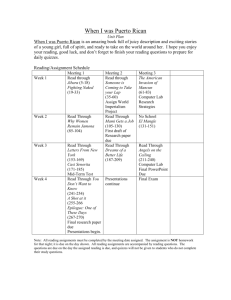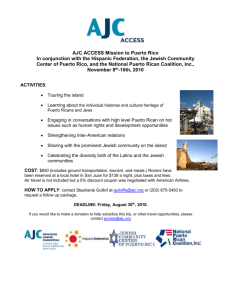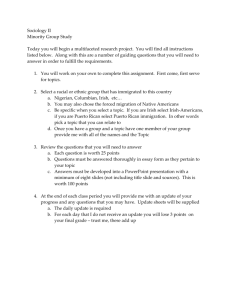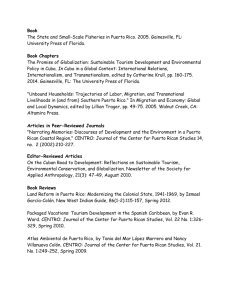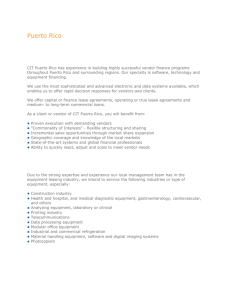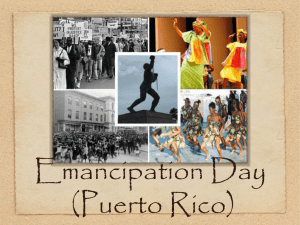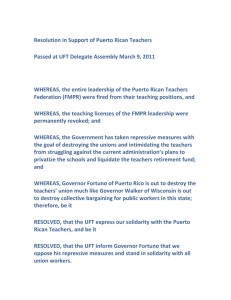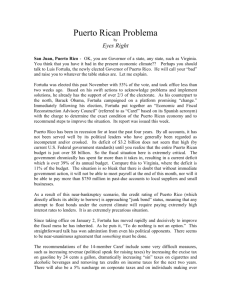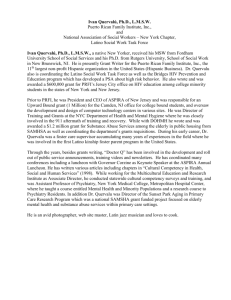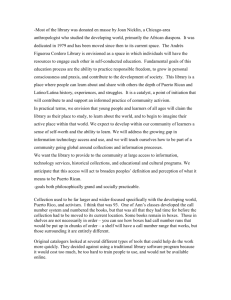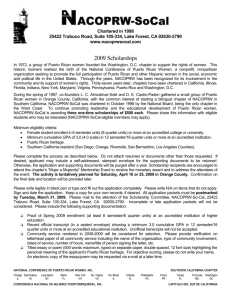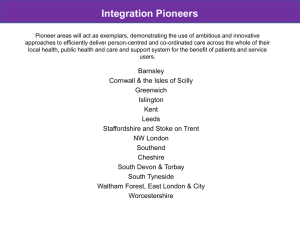Early Pioneers of Puerto Rico
advertisement
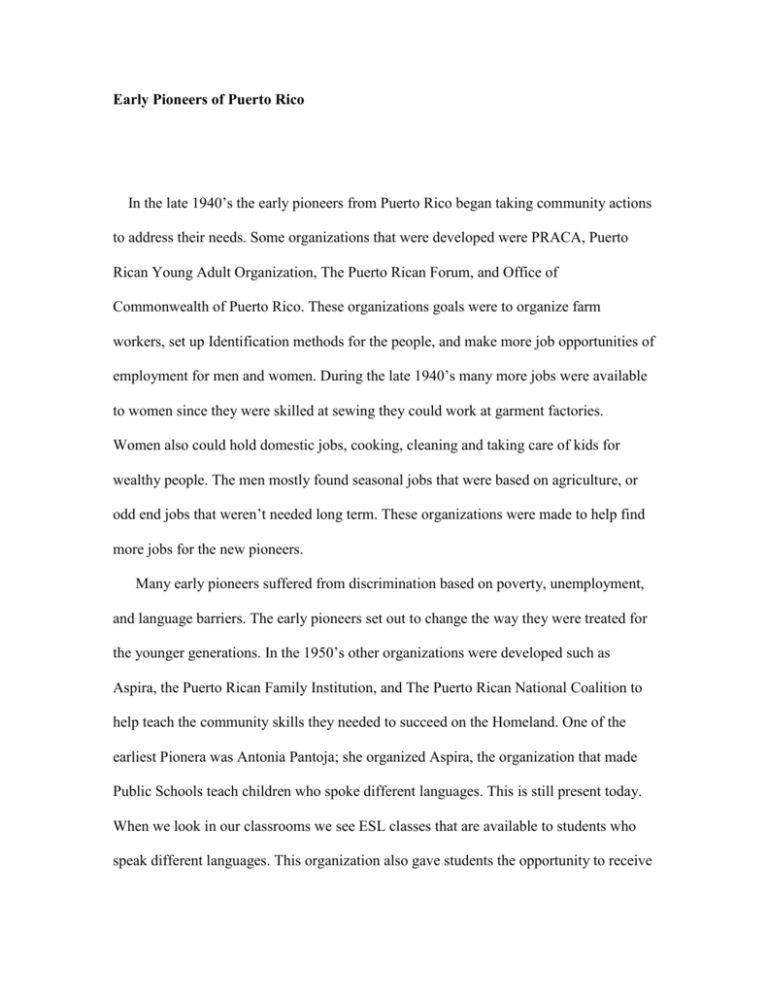
Early Pioneers of Puerto Rico In the late 1940’s the early pioneers from Puerto Rico began taking community actions to address their needs. Some organizations that were developed were PRACA, Puerto Rican Young Adult Organization, The Puerto Rican Forum, and Office of Commonwealth of Puerto Rico. These organizations goals were to organize farm workers, set up Identification methods for the people, and make more job opportunities of employment for men and women. During the late 1940’s many more jobs were available to women since they were skilled at sewing they could work at garment factories. Women also could hold domestic jobs, cooking, cleaning and taking care of kids for wealthy people. The men mostly found seasonal jobs that were based on agriculture, or odd end jobs that weren’t needed long term. These organizations were made to help find more jobs for the new pioneers. Many early pioneers suffered from discrimination based on poverty, unemployment, and language barriers. The early pioneers set out to change the way they were treated for the younger generations. In the 1950’s other organizations were developed such as Aspira, the Puerto Rican Family Institution, and The Puerto Rican National Coalition to help teach the community skills they needed to succeed on the Homeland. One of the earliest Pionera was Antonia Pantoja; she organized Aspira, the organization that made Public Schools teach children who spoke different languages. This is still present today. When we look in our classrooms we see ESL classes that are available to students who speak different languages. This organization also gave students the opportunity to receive a better education by giving them counseling, advisement, and financial aide, and cultural awareness to succeed in colleges. When we look back we see the early pioneers have not only opened the doors for Puerto Ricans but for every minority group that comes to America seeking a new life without the hardships they faced in their own home.
